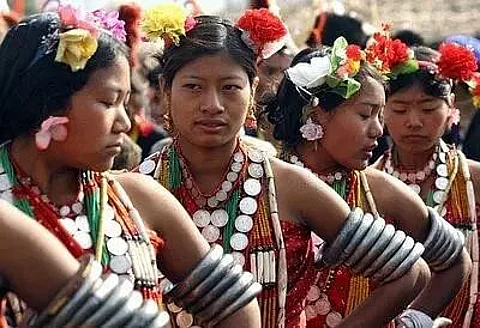'Greater Tipraland' sparks fear, leaders say it's for Northeast tribals' progress
AGARTALA: Amid all major political parties' opposition and sceptical stand, tribal party 'TIPRA Motha', which in the April 6 elections had captured the politically important Tripura Tribal Areas Autonomous District Council (TTAADC) defeating the ruling BJP-IPFT alliance, CPI-M and Congress, has passed a resolution in the council on Friday to create a "Greater Tipraland".
TIPRA Motha claims it is necessary for the socio-economic development of indigenous tribals inhabiting the eight northeastern states and the neighbouring countries, including Bangladesh.
The Greater Tipraland demand of the TIPRA (The Indigenous Progressive Regional Alliance) Motha ('Motha' is a tribal word meaning tribals' unity) created huge controversy, doubts and fears in the mixed populated Tripura ever since the newly-formed party headed by Tripura's royal scion Pradyot Bikram Manikya Deb Barman raised the demand in 2019.
The TTAADC, which has a jurisdiction over two-thirds of Tripura's 10,491 sq km area and is home to over 12,16,000 people, of which 90 per cent are tribals, was constituted under the Sixth Schedule of the Constitution in June 1985 for the socio-economic development of the tribals, who have always played a significant role in Tripura politics as they constitute one-third of the northeastern state's four million population.
TTAADC member Runeil Debbarma, who moved the resolution in the council session on Thursday which was adopted the next day, said that the resolution would now be sent to the Governor, the state government and the Centre to create a Greater Tipraland.
"Under the Greater Tipraland concept, a powerful council would be constituted for the all-round socio-economic development of the indigenous tribals residing in the eight northeastern States and the neighbouring countries, including Bangladesh. Such councils exist in European countries. We want to resolve the tribals' basic problems permanently," Debbarma said. (IANS)
Also Watch:

